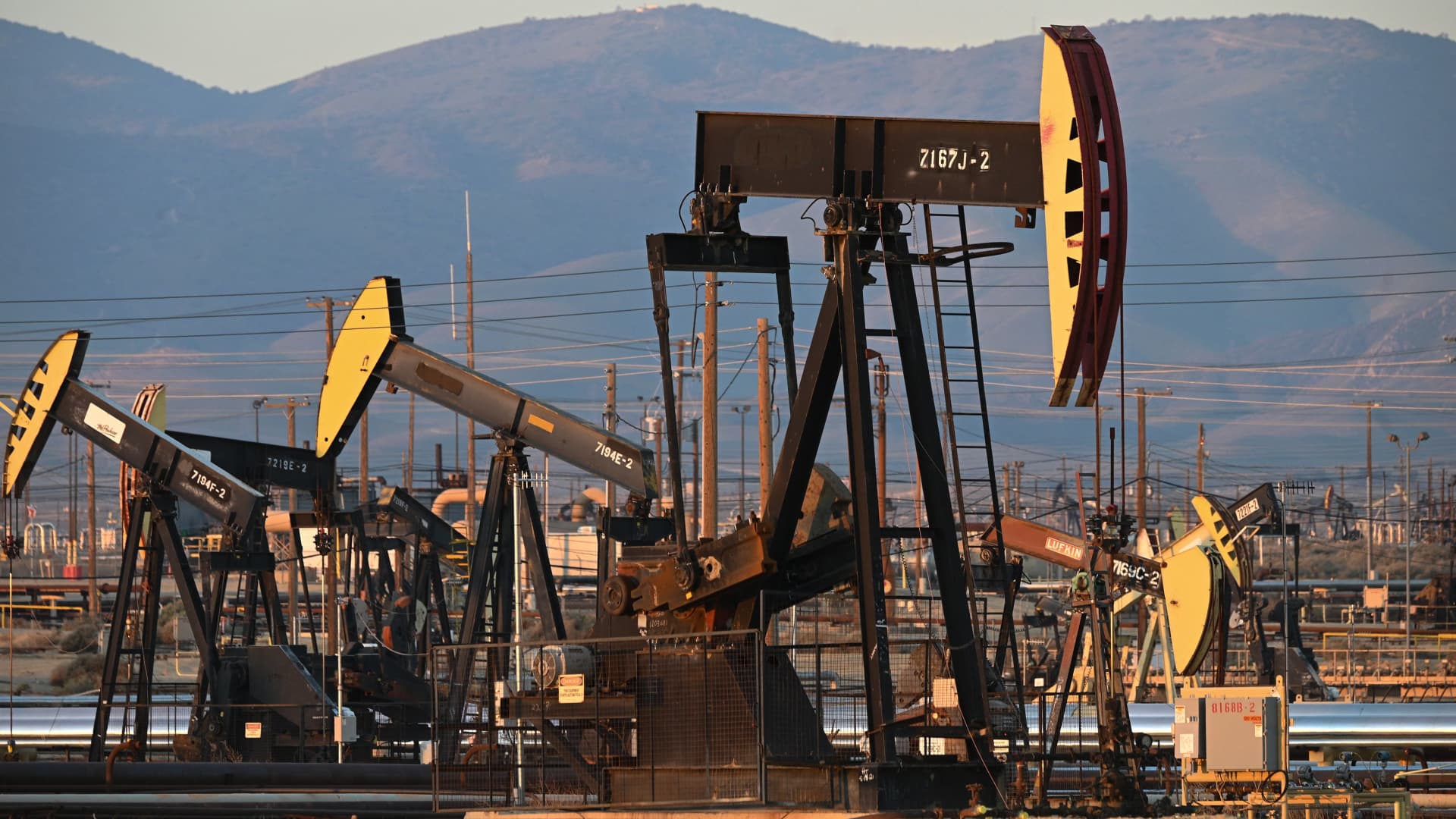What OPEC’s surprise production cut means for our oil stocks

Crude prices and oil stocks jumped Monday after OPEC+ members announced a surprise production cut, giving investors an opportunity to pare back their energy exposure. Indeed, the Club would’ve exited our Devon Energy (DVN) position Monday if not for restrictions that prevent us from trading the stock. Saudi Arabia and fellow members of the Organization of Petroleum Exporting Countries said Sunday they are reducing oil output targets by a combined 1.16 million barrels per day. The planned reduction — set to go into effect in May and last through 2023 — is a “precautionary measure aimed at supporting the stability of the oil market,” Saudi Arabia’s energy ministry said in a statement. This latest production decrease is in addition to the 2-million-barrels-per-day cut implemented in November by OPEC and a group of partner producers led by Russia, together known as OPEC+. Russia also said Sunday its 500,000 barrel-per-day cut will extend through the end of the year, instead of lapsing in June. However, many analysts had expected Russia’s output reduction to be extended. Oil prices rose more than 6% on Monday, with U.S. crude benchmark West Texas Intermediate climbing above $80 per barrel for the first time since early March. In mid-March, WTI had fallen to its lowest levels since December 2021 on concerns that the U.S. banking crisis could hurt economic growth. Brent crude, the international benchmark, traded around $85 per barrel Monday, extending its rally off recent lows in the low $70s. Halliburton (HAL) shares surged more than 8% Monday, to over $34 each, as the best-performing Club energy stock. Devon and Pioneer Natural Resources (PXD) climbed roughly 6% and 4%, respectively. Shares of Coterra Energy (CTRA), our energy stock most focused on natural gas, rose 2.3%. Some analysts raised their oil price targets in response to the production cut, including Goldman Sachs, which now sees Brent at $95 per barrel at year-end, up from $90. “This is a revenue-maximizing decision for OPEC under all the different scenarios. It was a voluntary cut,” Goldman’s commodities chief Jeff Currie said Monday on CNBC. “We have emphasized that OPEC’s pricing power is higher than it has ever been, and that they’re going to continue to exercise that power.” Citigroup analysts cautioned that “headwinds still lie ahead” for global oil markets, even if an initial spike in prices is “inevitable.” Eventually, the firm said in a note to clients, there could be a “realization that the market is a lot weaker than people think,” pointing to China’s slower-than-expected Covid reopening and diminished demand in many Western economies. Club take The Club views Monday’s oil move as a trimming opportunity because our read on the OPEC+ cut is similar to Citigroup — it’s a sign the demand side is tepid. In the short run, Jim Cramer said, oil prices could certainly climb a bit higher, possibly back to the $90-per-barrel level. “But at that point, you really have some resistance,” Jim said, because “the economies are not that strong around the world.” To be sure, we’re not looking at completely ditching our energy exposure for a few reasons. It still can act as a hedge against inflation, and our companies within the sector are cheap from an earnings and free cash flow perspective. They also have the robust capital return programs we covet. That’s why in March we added to our Pioneer position twice and Halliburton once at what is now much lower prices. When everyone hated oil and pushed those stocks lower, we stepped in to buy. But after this quick pop, we want our positions to be in accordance with our current worldview on economic growth and oil demand. We see China as the major outlier in the coming months as the world’s second-largest economy reopens from harsh Covid restrictions. Our positions in Estee Lauder (EL), Wynn Resorts (WYNN) and Starbucks (SBUX) allow us to benefit from that China tailwind. In energy, we want to consolidate from four stocks to three, and Devon is the one with we expect to move on from after the exploration and production (E & P) firm’s disappointing quarterly results in February . For weeks, we said we were waiting for a bounce in the stock to make the sale. We are experiencing that bounce now. As a reminder, Club rules prevent us from making a trade in any stock that Jim has mentioned on CNBC for 72 hours. That’s why we’re unable to sell Devon on Monday. (Jim Cramer’s Charitable Trust is long DVN, HAL, CTRA and PXD . See here for a full list of the stocks.) As a subscriber to the CNBC Investing Club with Jim Cramer, you will receive a trade alert before Jim makes a trade. Jim waits 45 minutes after sending a trade alert before buying or selling a stock in his charitable trust’s portfolio. If Jim has talked about a stock on CNBC TV, he waits 72 hours after issuing the trade alert before executing the trade. THE ABOVE INVESTING CLUB INFORMATION IS SUBJECT TO OUR TERMS AND CONDITIONS AND PRIVACY POLICY , TOGETHER WITH OUR DISCLAIMER . NO FIDUCIARY OBLIGATION OR DUTY EXISTS, OR IS CREATED, BY VIRTUE OF YOUR RECEIPT OF ANY INFORMATION PROVIDED IN CONNECTION WITH THE INVESTING CLUB. NO SPECIFIC OUTCOME OR PROFIT IS GUARANTEED.
Active pump jacks increase pressure to draw oil toward the surface at the South Belridge Oil Field on February 26, 2022, in unincorporated Kern County, California, approximately 141 miles (227 km) northwest of Los Angeles, California.
Robyn Beck | AFP | Getty Images
Crude prices and oil stocks jumped Monday after OPEC+ members announced a surprise production cut, giving investors an opportunity to pare back their energy exposure. Indeed, the Club would’ve exited our Devon Energy (DVN) position Monday if not for restrictions that prevent us from trading the stock.